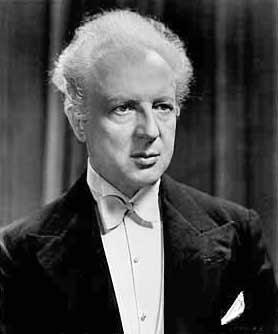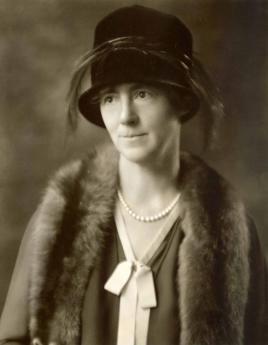Related Topics
Musical Philadelphia
Quakers never cared much for music, but the city has nonetheless musically flourished into international fame. At the same time, quarrels and internal battles have also been world class.
Cultural
Culture and Traditions (2)
L. Stokowsi and the Philadelphia Orchestra

|
| Leopold Stokowski |
Leopold Stokowski remains unchallenged as the greatest musical leader in Philadelphia's history. Serious musicians acknowledge his eminence in musicianship, while it must be admitted he enhanced his reputation with a great deal of showmanship. Showmanship makes Philadelphia grit its teeth.
Stokowski lived to be 95, so it is easy to forget the Philadelphia Orchestra was pretty insignificant when he arrived in 1912. Together with a great deal of money available from the Curtis family, he pretty much had a free hand in upgrading the players, one by one, making radical changes in the ingredients of his unique "Philadelphia Sound" by changing the proportionality of various instruments, modifying the physical variants of each instrument, rearranging the seating arrangements of the players on the stage, and responding to the acoustical properties of the Academy of Music. He composed hundreds of personal recordings of classical pieces and introduced dozens of new modern composers and soloists. He was a musician's musician, and partly because of his very long life he was able to change the nature of American classical music, putting Philadelphia at the very top of the heap.

|
| Mary Louise Bok |
He was also very quick to make use of new technology and new instrument variants. It was perhaps a bit of luck that RCA Victor was located just across the river in Camden, so the revenue from recordings was very substantial, right from the early years of this new form of entertainment. He appeared on radio and later on television. His movie Fantasia was the greatest and perhaps an only movie to make a smashing success of classical music. Behind the scenes, he took great care with arranging the instruments for recording sessions. Much of the vaunted acoustics of the Academy of Music was simply peculiarities of it, against which he made the musicians adapt their effort to create a characteristic sound which was partly due to the hall, and partly a conscious response to it. When the Orchestra took its many trips to other cities and nations, great care was taken to adjust the volume of component sounds to the size of the hall, emphasizing various instruments to exploit local peculiarities.

|
| Gloria Vanderbilt |
And finally, the exasperating part. He discarded the baton, directing with his bare hands. He discarded the score and directed from memory. He arranged the lights to shine only on his head and hands. He had temper tantrums with questionable justification. His first wife was named Lucie Hickenlooper but she changed it to Olga Samaroff to seem more exotic and urged Leopold to affect a continental accent and emphasize his middle European ancestry, even though he had been born and educated in England. He had a famous affair with Greta Garbo; it probably did not need to be famous. He married two heiresses with great fanfare and notoriety. They said he was gorgeous. Just how much of all this was due to his innate egotism, and how much was the affectation of an impresario is left to one's imagination. It is not difficult to imagine friction between him and the members of his board of directors.

|
| Greta Garbo |
As time has gone on, the physical acoustics of the Academy of Music has changed. Carpets have been added, seat backs replaced. When a new pipe organ was added, its weight required a second layer of flooring to hold it. Somehow, Stokowski's successors have been unable to change the orchestra to compensate completely for these subtle modifications; perhaps they had a different emphasis. One wonders if the veneration of former successes of many sorts might have held back the leadership of the orchestra from being sufficiently radical. In Stokey's day, radical changes were the expected thing, today they are viewed with caution. And most of all, there has been a role reversal between conductor and players. In the beginning, the players were on trial with the conductor. Today, the players are far superior in quality because of fame and the Curtis Institute; except for personality and showmanship, most of them could qualify as soloists. Consequently, any new conductor is on trial with the players, and the players' glory in it a little. In a profession filled with neurotic insecurities, there isn't room for quite so many egotists. Everybody seems on the edge of asking whether they need the orchestra, or the orchestra needs them; at times of financial downturn, that extends to the board of directors as well, and even to the audience.
The Philadelphia Orchestra is far stronger than it used to be. It trails a century of triumphs, a pantheon of stars, and the remarkable strength of the Curtis Institute continually renewing its talent. But like so many institutions with a glorious history, it must be careful not to rest too confidently on its strengths.
Originally published: Saturday, June 05, 2010; most-recently modified: Friday, May 31, 2019